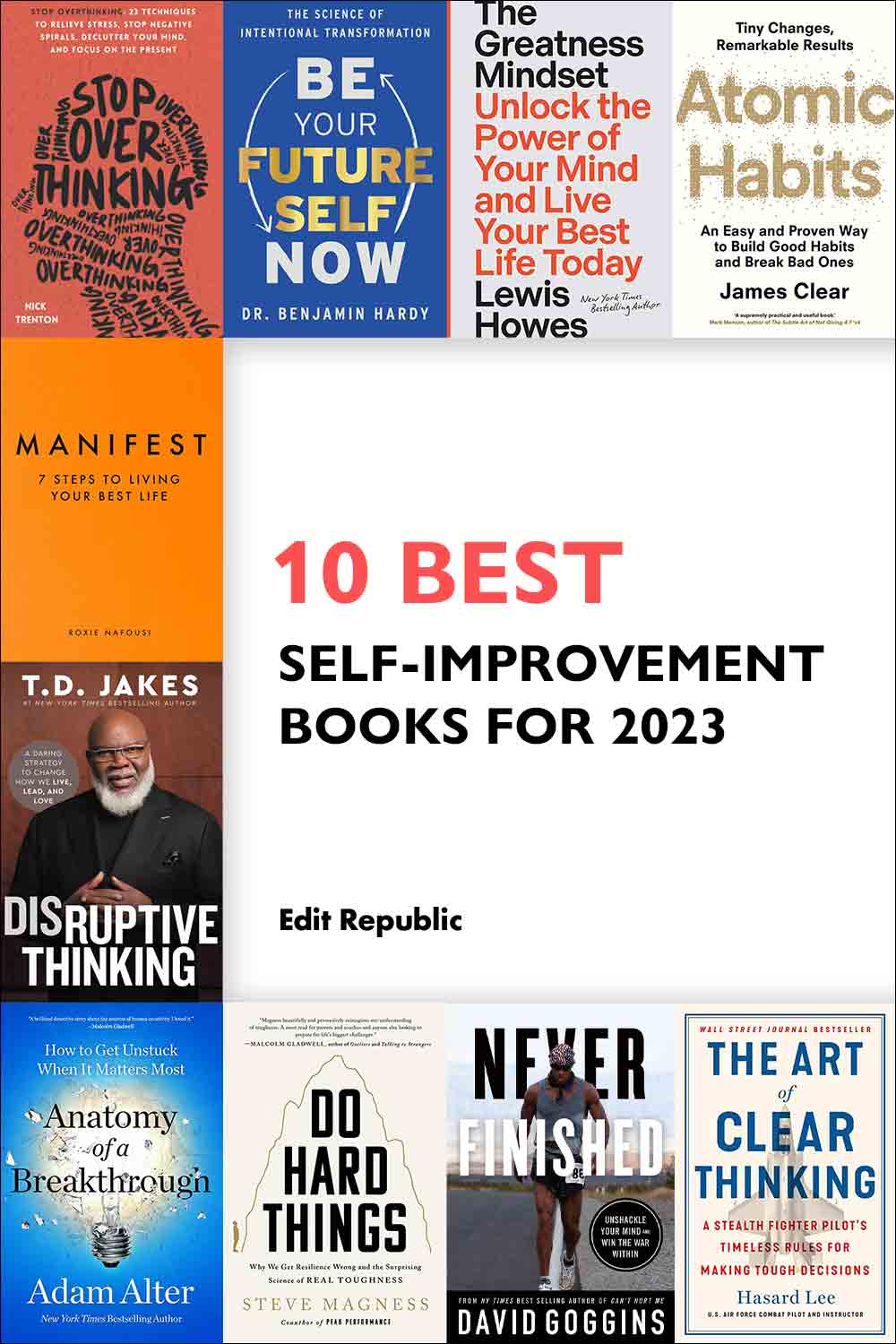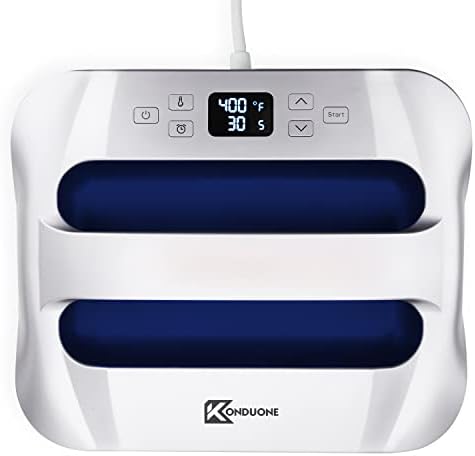9 Best Self Help Books for Personal Growth and Empowerment
Feeling stuck or looking to elevate your life? Self-help books can be your guiding light, offering valuable insights and practical advice. Whether you want to boost your confidence, improve relationships, or find inner peace, there’s a book out there for you.
We’ve curated a list of the 9 best self-help books that have transformed countless lives. These aren’t just popular titles; they’re powerful tools that can help you unlock your full potential. Ready to embark on a journey of self-discovery and growth? Let’s dive in.
Understanding the Benefits of Self Help Books
Self-help books are crucial tools for personal transformation. They offer guidance, motivate change, and provide techniques for bettering yourself.
Personal Growth and Empowerment
Self-help books foster personal growth by introducing new perspectives. They encourage you to set and achieve personal goals. Books like “The 7 Habits of Highly Effective People” by Stephen Covey teach crucial life skills. They help you build resilience and adapt to life’s challenges. Real stories and actionable advice empower you to take control of your life. You gain confidence as you see progress and transformation unfold in your journey.
Enhanced Mental Health and Well-being
Reading self-help books can significantly enhance your mental health. Books like “The Power of Now” by Eckhart Tolle help you practice mindfulness. They offer strategies to reduce stress and anxiety. Practical exercises improve your emotional regulation. You learn to foster a positive mindset. These books encourage self-awareness and introspection, leading to improved mental well-being. You’ll find yourself better equipped to handle life’s difficulties.
Review Criteria for Choosing the Best Self Help Books
Selecting the best self-help books involves specific criteria to ensure they provide genuine value. Here’s what you should consider:
Relevance of Content
Ensure the content aligns with your personal goals. Look for books addressing areas you want to improve, such as productivity or mindfulness. Topics like stress management, career growth, or relationships should be directly applicable to your current needs. The more targeted the content, the more impactful the book will be for you.
Author Expertise and Background
Check the author’s credentials and experience. Authors with a solid background in psychology, coaching, or personal development are more likely to provide reliable advice. Look for their qualifications, previous works, and any professional experience that lends credibility to their guidance. Experienced authors bring evidence-based insights and practical strategies.
Reader Reviews and Testimonials
Read what other readers have to say. Reviews and testimonials can offer valuable perspectives on the book’s effectiveness. High ratings and positive feedback often indicate that the book has been helpful to others. Pay attention to detailed reviews that mention specific benefits or transformative experiences, as these can give you a clearer idea of the book’s potential impact.
1. Explore Your Potential: “Awaken the Giant Within” by Tony Robbins
Tony Robbins’ “Awaken the Giant Within” is a transformative guide to unlocking your hidden potential. With practical steps, it empowers you to take control of your life and destiny.
Key Concepts Covered
Robbins delves into the power of decision-making, teaching you how to transform your emotions, finances, relationships, and life goals. He focuses on:
- Neuro-Associative Conditioning (NAC): A technique to change behaviors by altering emotional and mental patterns.
- Core Beliefs: Identifying and reshaping limiting beliefs to achieve your true potential.
- Value Hierarchies: Aligning your values with your goals to create lasting change.
- Emotional Mastery: Controlling emotional states to ensure consistent, positive action.
How This Book Can Change Your Life
“Awaken the Giant Within” can revolutionize how you approach challenges and self-improvement. It offers:
- Actionable Strategies: Each chapter provides practical steps to apply the concepts immediately.
- Empowering Mindset: You’ll develop a robust, optimistic outlook that propels you to take massive action.
- Enhanced Self-Awareness: Increased awareness of your thoughts and behaviors leads to better decision-making.
- Life Transformation: By adopting Robbins’ methods, you can radically transform various aspects of your life, from personal growth to professional success.
Utilizing the techniques in Tony Robbins’ book, you can truly harness your potential and create a fulfilling, successful life.
2. Master New Habits: “Atomic Habits” by James Clear
James Clear’s “Atomic Habits” is a powerful guide to building good habits and breaking bad ones. This book focuses on making tiny changes that lead to remarkable results over time.
Core Principles of Habit Formation
Clear breaks down habit formation into small, manageable steps. He introduces the concept of the “Habit Loop,” which consists of a cue, craving, response, and reward. Understanding this loop can help you identify and change your behaviors more effectively. The book emphasizes the importance of starting small, using 1% increments to make habits manageable.
Practical Strategies for Lasting Change
Clear offers actionable strategies to ensure that new habits stick. He recommends the “Two-Minute Rule,” which suggests starting new habits by committing to just two minutes. This minimizes resistance and makes it easier to get started. Clear also advises designing your environment to support your habits, like placing your workout gear in a visible spot. By making these tiny adjustments, you create conditions that make it easier to maintain new behaviors.
3. Find Your Why: “Start With Why” by Simon Sinek
Importance of Purpose in Success
Understanding your “why” is crucial for achieving lasting success. In “Start With Why,” Simon Sinek argues that knowing your purpose can significantly impact motivation and leadership. When you align your actions with your core beliefs, you create a powerful sense of direction that can inspire others. For instance, companies with a clear “why” often outperform their competitors because they attract loyal customers and motivated employees. Sinek’s insights can help you focus on what truly drives you, leading to more meaningful and sustainable success.
Applying the Golden Circle Model
Sinek introduces the Golden Circle Model to illustrate the importance of starting with “why.” The model consists of three layers: Why, How, and What. The outer layer, “What,” refers to the products or services you offer. The middle layer, “How,” encompasses the processes you use to achieve your goals. The core layer, “Why,” represents the purpose, cause, or belief that drives you. By starting with “why,” you can create a stronger connection with your audience. For example, Apple communicates its “why” through innovative design and user experience, leading to a loyal customer base. Applying this model can help you achieve better clarity, focus, and impact in your personal and professional endeavors.
4. Embrace Vulnerability: “Daring Greatly” by Brené Brown
Discovering how vulnerability can be your superpower is essential. Brené Brown’s “Daring Greatly” masterfully explains why embracing vulnerability can transform your life.
Understanding Vulnerability as Strength
Seeing vulnerability as a strength rather than a weakness is key. In “Daring Greatly,” Brown argues that understanding your vulnerabilities enables true courage and authentic living. Vulnerability allows you to take risks and face uncertainties with an open heart, fostering genuine connections with others.
Benefits of Being Vulnerable in Personal and Professional Life
Reaping the benefits of vulnerability in both personal and professional spheres is transformative. In your personal life, embracing vulnerability can deepen relationships, fostering trust and intimacy. Professionally, showing vulnerability can enhance leadership qualities, encourage innovation, and build a more resilient and empathetic workplace culture. Brown’s book provides actionable insights on how to use vulnerability as a catalyst for growth and connection, making it an indispensable read for those seeking to improve their lives holistically.
5. Control Your Finances: “Rich Dad Poor Dad” by Robert Kiyosaki
Financial Literacy Concepts
Understand the different financial literacy concepts introduced in “Rich Dad Poor Dad.” Kiyosaki emphasizes the importance of assets and liabilities, showing you how to differentiate between them effectively. He explains that assets put money in your pocket, whereas liabilities take money out. By understanding this distinction, you can start building wealth through strategic investments. Kiyosaki also introduces the idea of financial independence and stresses creating passive income streams. These concepts can help you take control of your financial future.
Impact of Financial Education on Personal Wealth
Discover how financial education can significantly impact personal wealth through Kiyosaki’s teachings. He illustrates the value of financial knowledge over academic grades, promoting real-world learning experiences that yield financial success. By gaining financial education, you can make informed decisions about money management, investment opportunities, and risk assessment. Kiyosaki’s principles encourage you to change your mindset about money, leading to smarter financial habits and greater wealth accumulation.
6. Develop Mental Fortitude: “The Subtle Art of Not Giving a F*ck” by Mark Manson
Mark Manson’s “The Subtle Art of Not Giving a F*ck” helps you develop mental fortitude by changing your perspective on importance and teaching you to find inner peace through letting go.
Shifting Your Perspective on Importance
Manson argues you should focus on what truly matters. He advises against wasting energy on trivial things, suggesting you determine your core values. For instance, don’t stress over minor social gaffes; instead, prioritize deep connections and personal goals. By doing this, you’ll conserve mental energy for the things that align with your life’s purpose.
Achieving Inner Peace by Letting Go
Letting go of unimportant concerns boosts your inner peace. Manson’s pragmatic approach suggests you embrace life’s uncertainties and mistakes rather than chasing unfounded perfection. For example, accepting that you can’t control everything frees you from constant anxiety, allowing you to focus on meaningful experiences. This mindset fosters resilience and contentment in daily life.
7. Achieve Peak Productivity: “Deep Work” by Cal Newport
Looking to maximize your efficiency and accomplish more meaningful work? Deep Work” by Cal Newport offers valuable insights into achieving peak productivity.
Principles of Concentration and Success
Newport advocates for intense focus to produce high-quality work. He describes “deep work” as professional activities performed in a state of distraction-free concentration that push your cognitive capabilities to their limit. Examples include writing, coding, and researching. These tasks result in new value, improve your skill, and are hard to replicate.
Techniques for Minimizing Distractions
Newport shares practical techniques to minimize interruptions. Schedule specific periods for focused work, and use tools like time-blocking to manage your day. For instance, you might allocate 2 hours in the morning exclusively for deep work. Additionally, Newport recommends embracing boredom by resisting the urge to constantly switch tasks, thus training your mind to maintain sustained concentration.
8. Enhance Emotional Intelligence: “Emotional Intelligence” by Daniel Goleman
Daniel Goleman’s groundbreaking work, “Emotional Intelligence,” provides valuable insights into understanding and managing emotions to improve various aspects of life. This book helps you develop emotional intelligence, an essential skill for both personal and professional growth.
Understanding and Managing Emotions
Goleman explains the five key components of emotional intelligence: self-awareness, self-regulation, motivation, empathy, and social skills. By understanding these components, you can better recognize and navigate your emotions. For example, identifying your emotional triggers allows you to manage your reactions instead of being controlled by them. Self-awareness enhances your ability to understand your strengths and weaknesses, making it easier to develop self-regulation strategies to keep your emotions in check.
Real-world Applications of Emotional Intelligence
Applying emotional intelligence in real-world scenarios can significantly improve your relationships and work performance. For instance, empathy helps you understand others’ perspectives, fostering better communication and collaboration. Goleman illustrates how emotional intelligence can lead to more effective leadership, as emotionally intelligent leaders can inspire and motivate their teams. Additionally, improved social skills enhance your ability to network, negotiate, and resolve conflicts, all of which are crucial in both personal and professional settings.
9. Optimizing Personal Energy: “The Power of Full Engagement” by Jim Loehr and Tony Schwartz
Managing Energy Instead of Time
Focus on managing your energy rather than trying to micromanage every minute. “The Power of Full Engagement” advocates for this approach, suggesting that energy management is more effective than time management. Jim Loehr and Tony Schwartz introduce practical strategies to help you balance your physical, emotional, mental, and spiritual energy. By doing so, you can achieve higher levels of performance and satisfaction in all areas of life.
Strategies for Improved Energy Levels
Employ practical strategies to boost your energy. The book outlines how to incorporate rituals and routines that nourish your energy reserves. For example, the authors recommend taking brief but frequent breaks throughout the day to recharge. Another strategy includes balancing your energy expenditure with energy renewal activities, such as exercise, proper nutrition, and quality sleep. By following these guidelines, you can optimize your energy levels and maintain peak performance.
Conclusion: Enhancing Your Life Through Self Help Books
Diving into self-help books can be transformative, offering you the tools to enhance different aspects of your life. From personal growth and empowerment to mastering productivity and emotional intelligence, these books provide actionable strategies you can implement immediately.
Whether you’re seeking to improve your mental resilience, understand your emotions better, or manage your energy more effectively, the right self-help book can be a game-changer. Each book in this list has the potential to guide you towards a more fulfilling and balanced life.
Embrace the wisdom these books offer and take the first step towards a better you. Your journey to self-improvement and personal growth starts with the turn of a page.
Frequently Asked Questions
What are the primary benefits of reading self-help books?
Self-help books can foster personal growth, boost self-awareness, and empower individuals to take proactive steps towards improving their lives. They often provide practical tools and strategies for enhancing various aspects of life, including relationships, productivity, and emotional well-being.
How can “The 7 Habits of Highly Effective People” improve personal effectiveness?
“The 7 Habits of Highly Effective People” by Stephen Covey offers timeless principles for personal and professional success. The book focuses on developing key habits such as proactivity, goal setting, and prioritization to enhance overall effectiveness and achieve meaningful personal and professional goals.
What is the Golden Circle Model and how can it help in personal development?
The Golden Circle Model, introduced by Simon Sinek, emphasizes starting with “Why” to inspire action. Understanding your purpose (Why), how you will achieve it (How), and what actions to take (What) can lead to greater motivation, clarity, and fulfillment in personal and professional endeavors.
How does Brené Brown’s concept of vulnerability contribute to personal growth?
Brené Brown’s research highlights that embracing vulnerability is essential for building meaningful connections and fostering emotional resilience. By accepting and expressing vulnerability, individuals can improve their relationships and gain the courage to take risks and learn from failures.
What key financial lessons can be learned from “Rich Dad Poor Dad”?
“Rich Dad Poor Dad” by Robert Kiyosaki teaches financial literacy by contrasting the differing attitudes towards money and investing between the author’s “Rich Dad” and “Poor Dad.” Essential lessons include the importance of financial education, investing in assets, and understanding how money works to achieve financial independence.
How does “The Subtle Art of Not Giving a F*ck” promote mental resilience?
Mark Manson’s “The Subtle Art of Not Giving a F*ck” encourages readers to identify and focus on what truly matters to them. By letting go of trivial concerns and embracing discomfort, individuals can build mental resilience and lead more fulfilling lives centered around their core values.
What are the key strategies for peak productivity discussed in “Deep Work”?
Cal Newport’s “Deep Work” emphasizes the importance of focused, undistracted work to achieve high levels of productivity. Key strategies include setting specific goals for deep work sessions, minimizing distractions, and cultivating a routine that supports long periods of concentration and creative output.
Why is emotional intelligence important in personal and professional development?
Emotional intelligence, as described by Daniel Goleman, involves the ability to understand and manage one’s own emotions and the emotions of others. High emotional intelligence can lead to better relationships, improved communication, and effective leadership, significantly enhancing both personal and professional growth.
What practical strategies does “The Power of Full Engagement” propose for balancing energy?
“The Power of Full Engagement” by Jim Loehr and Tony Schwartz advocates managing energy over time for optimal performance. Practical strategies include establishing rituals for work and rest, taking regular breaks, and balancing energy expenditure with renewal activities to maintain high energy levels and peak performance in all aspects of life.






